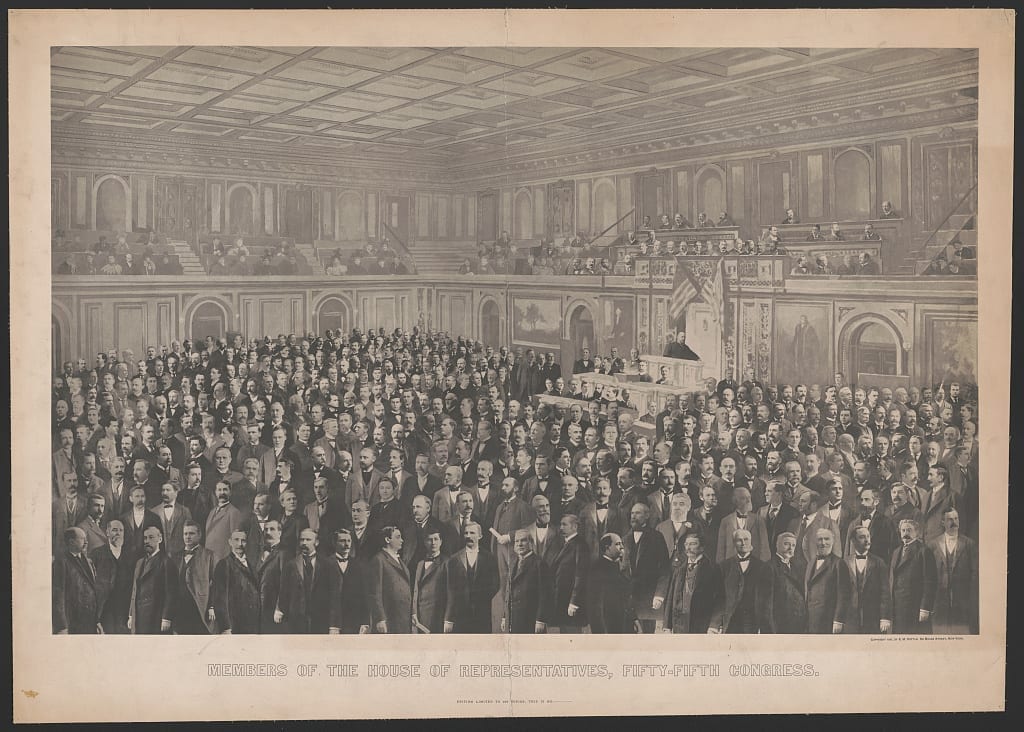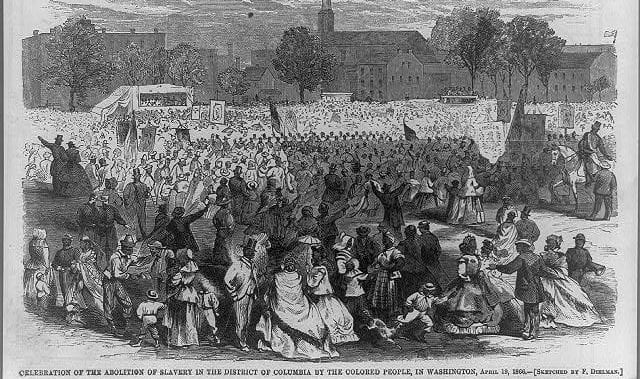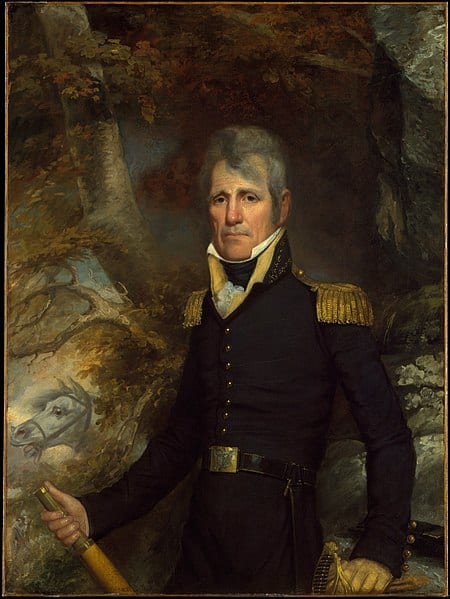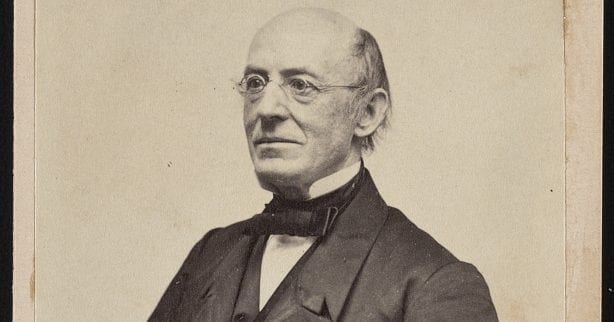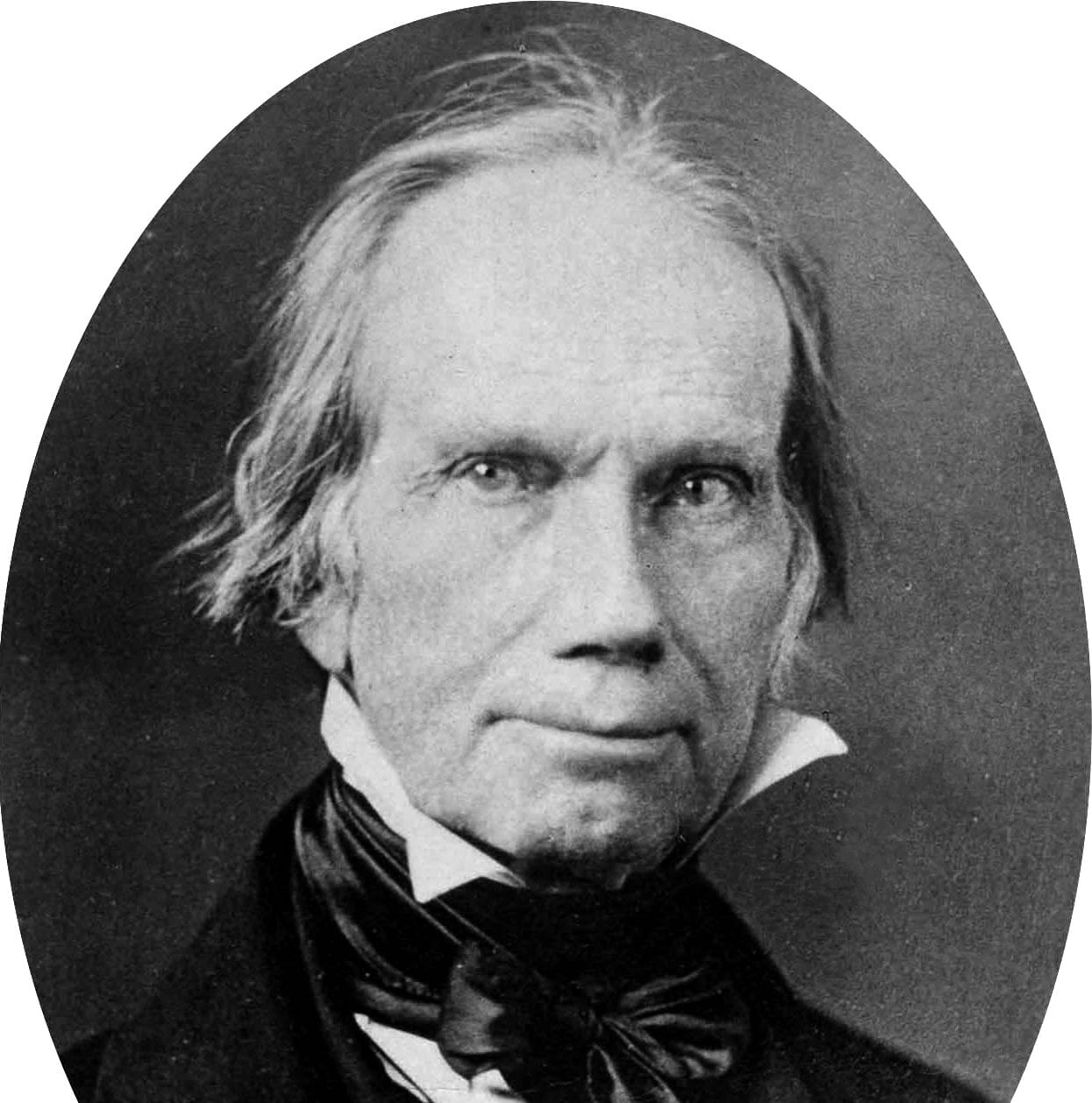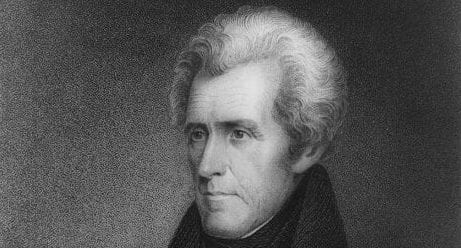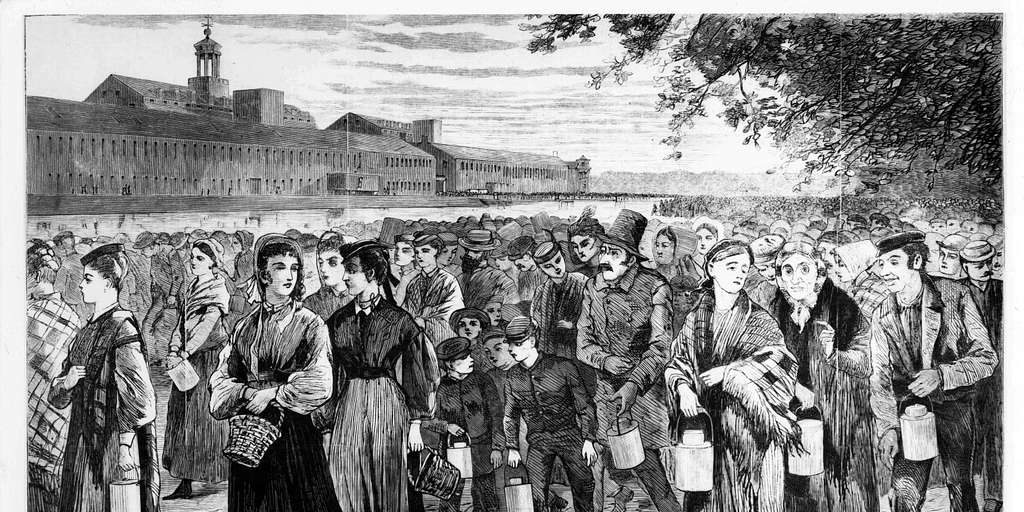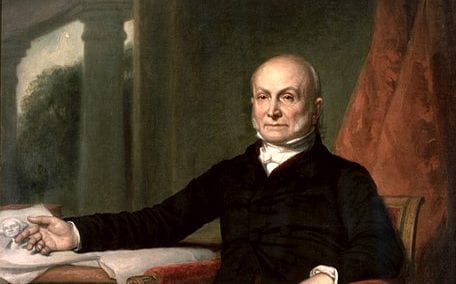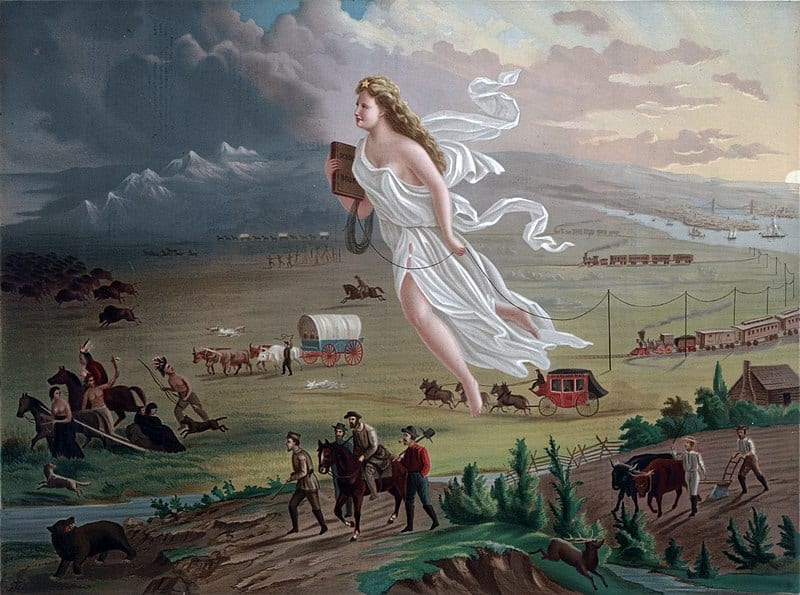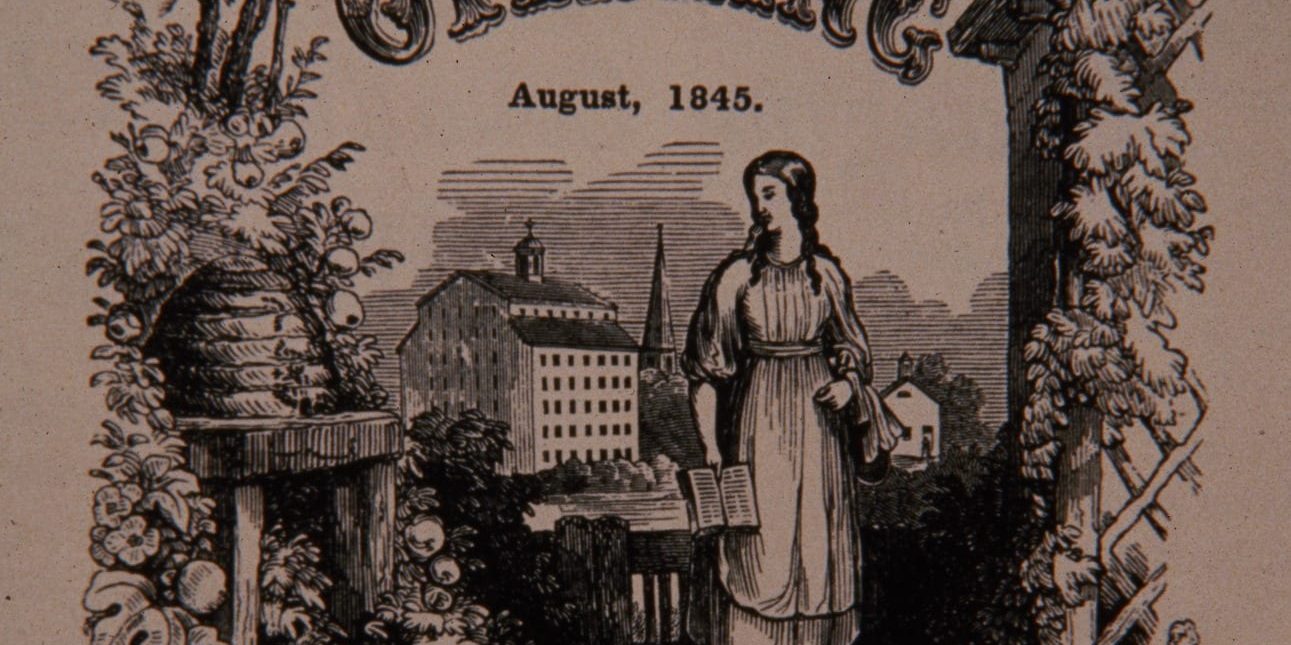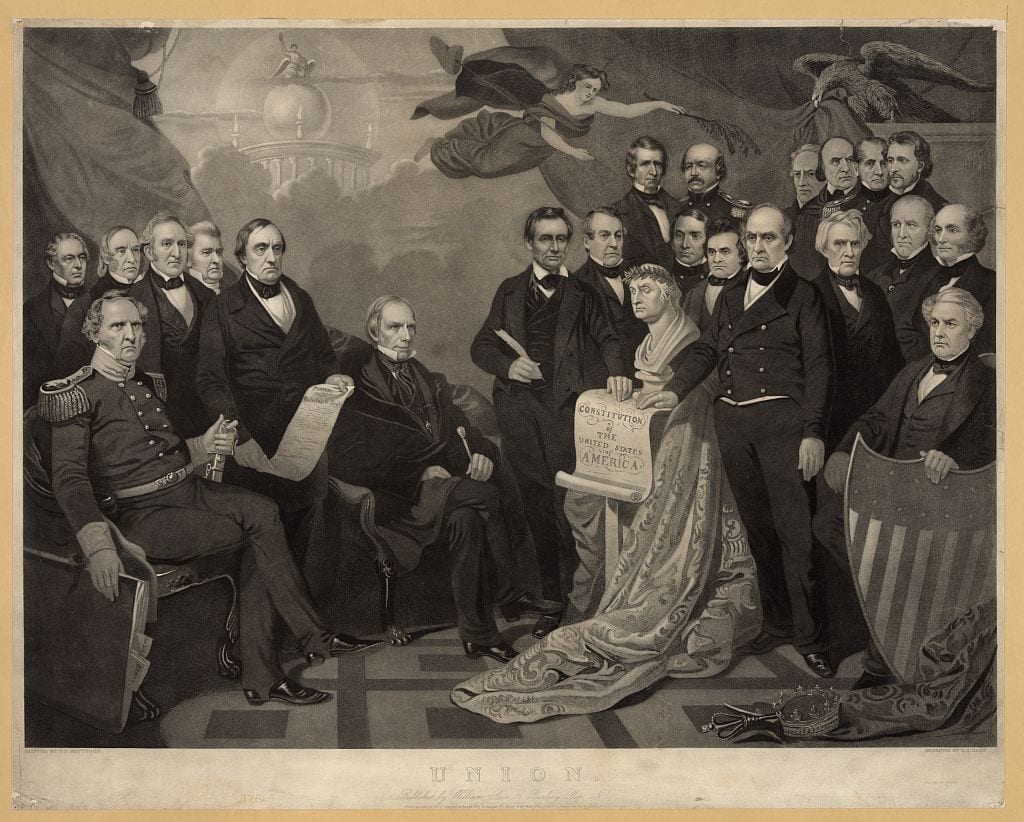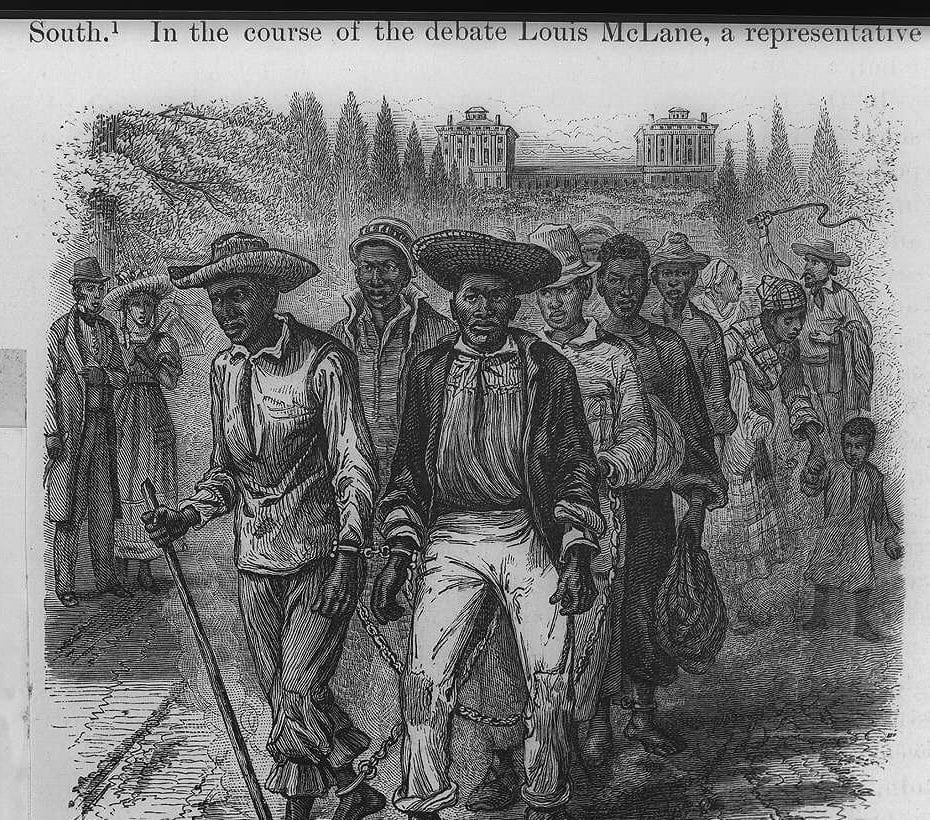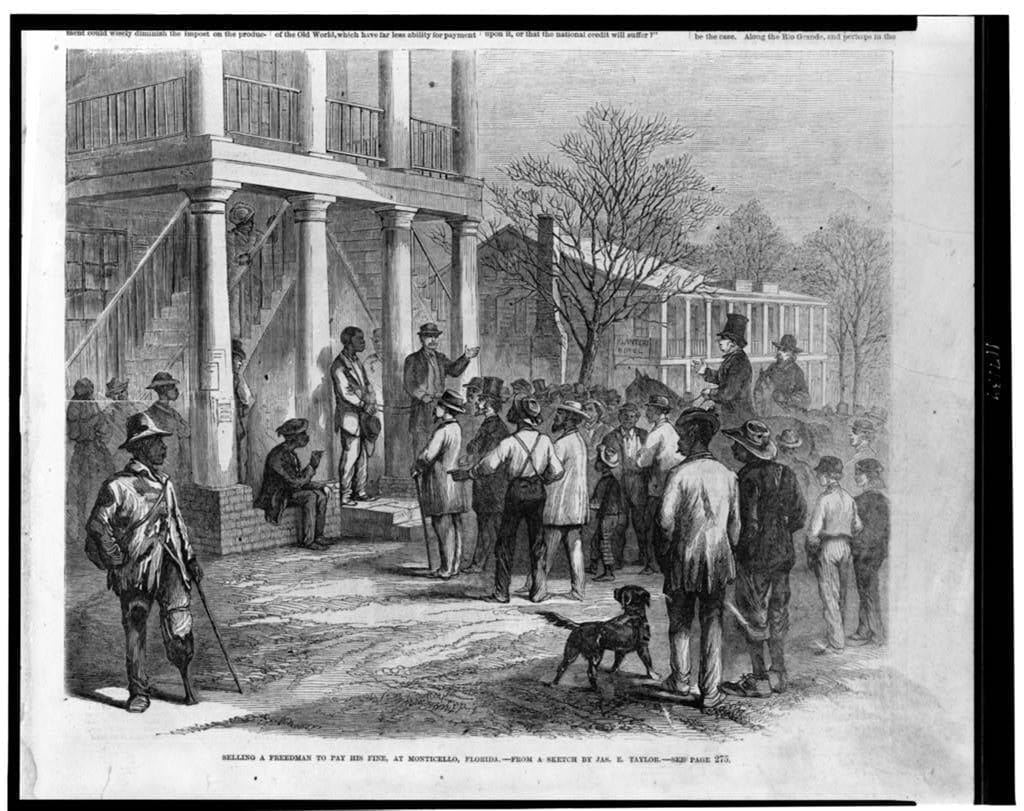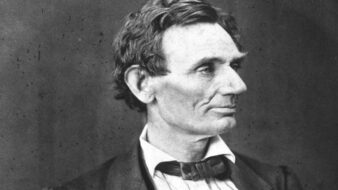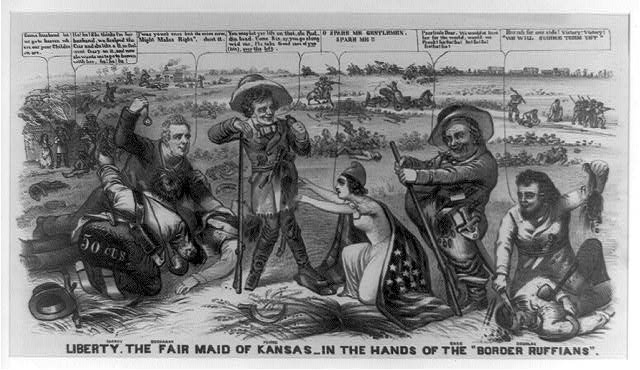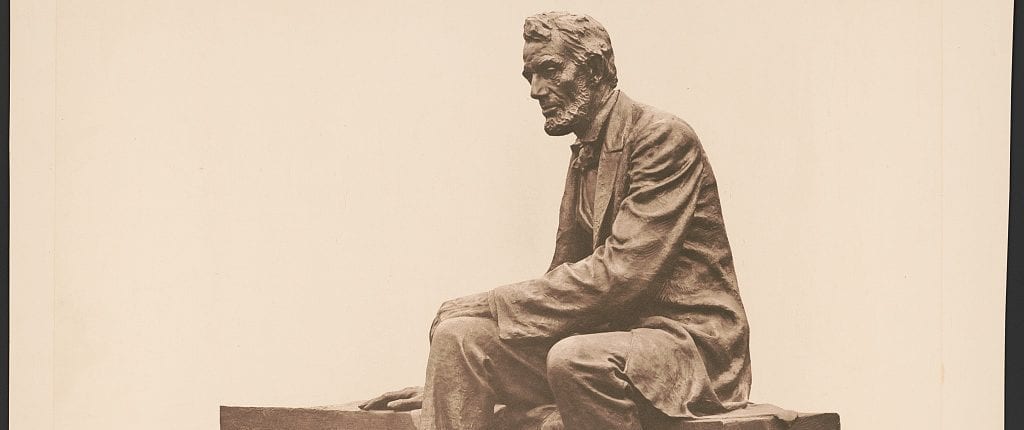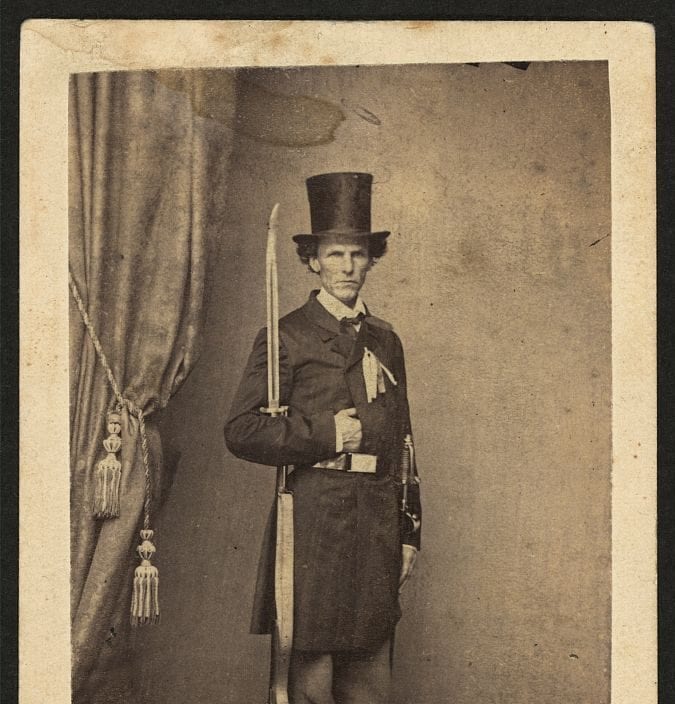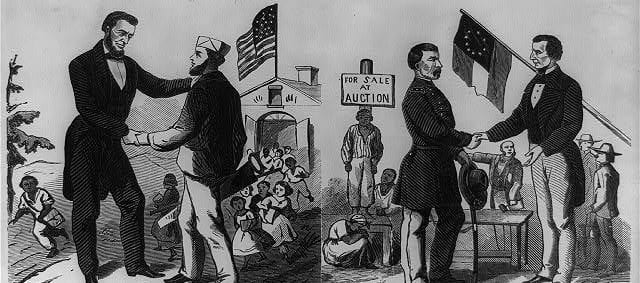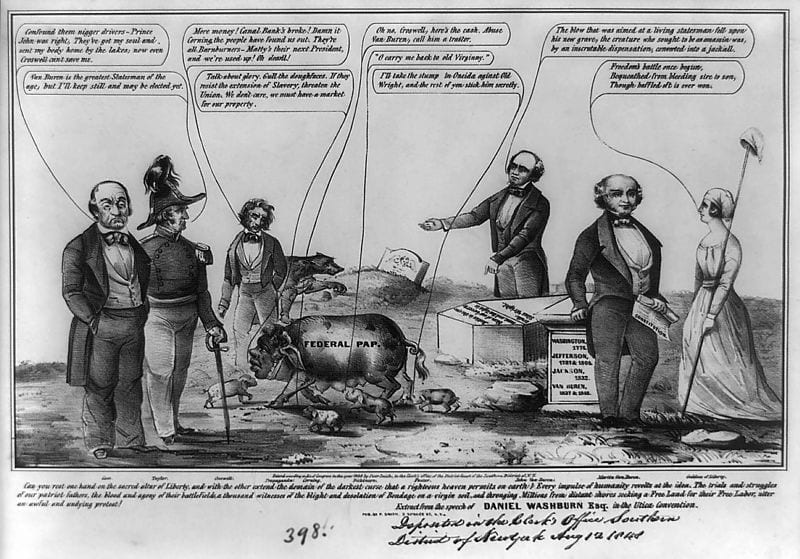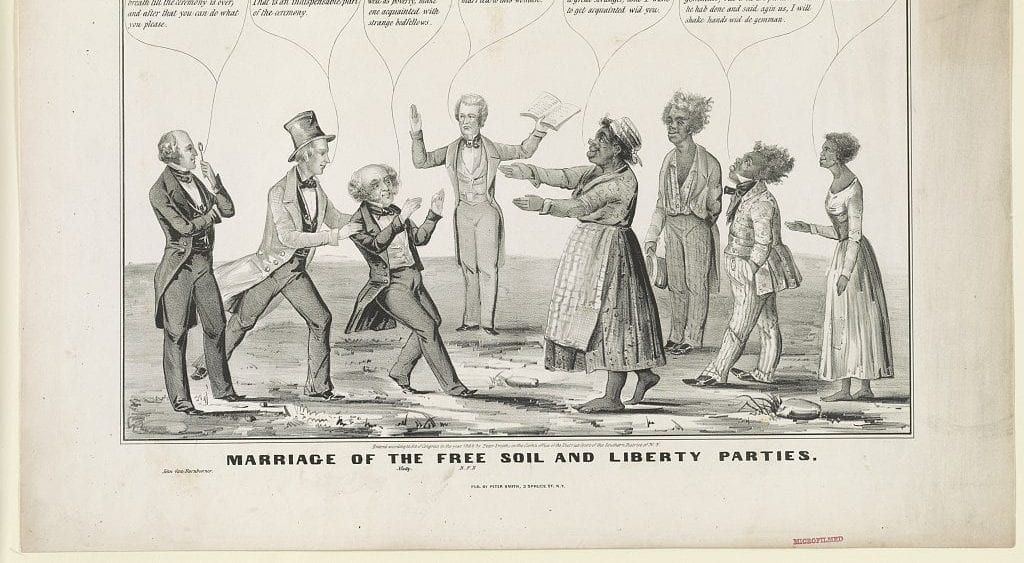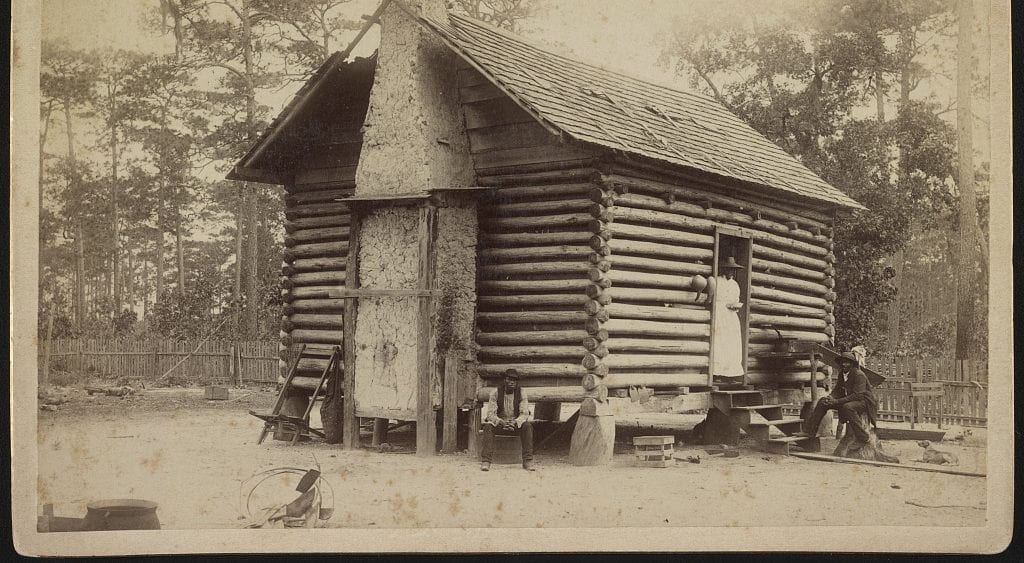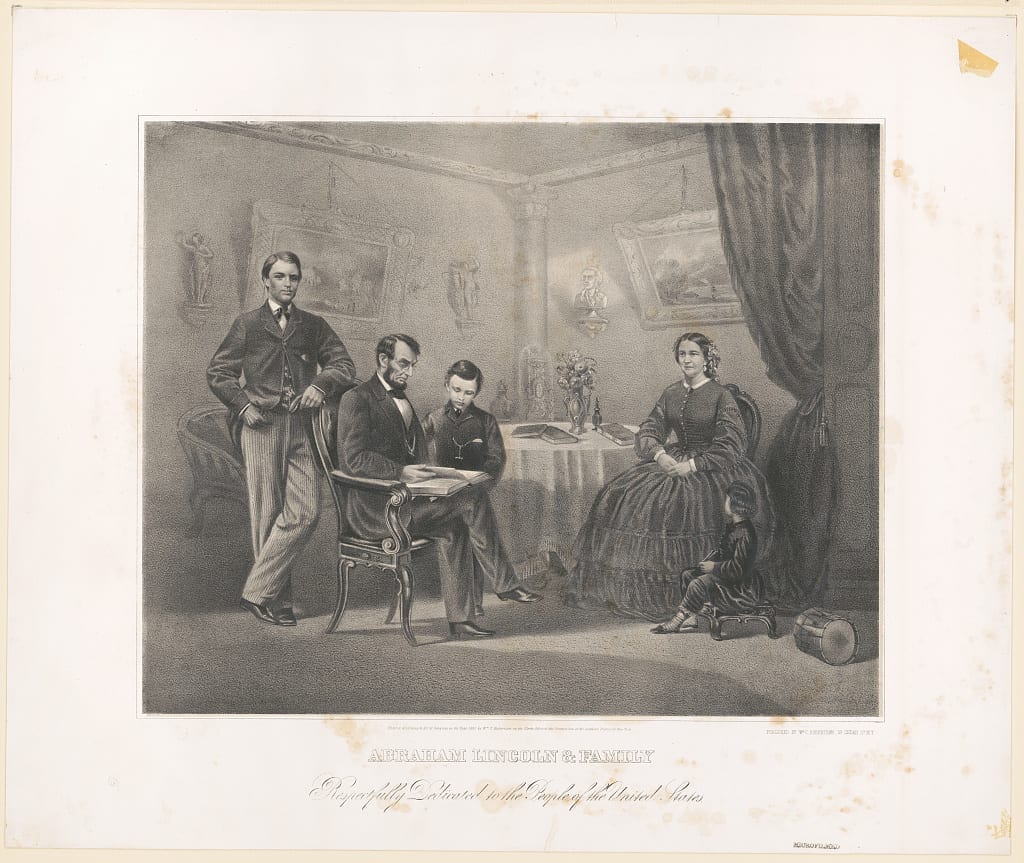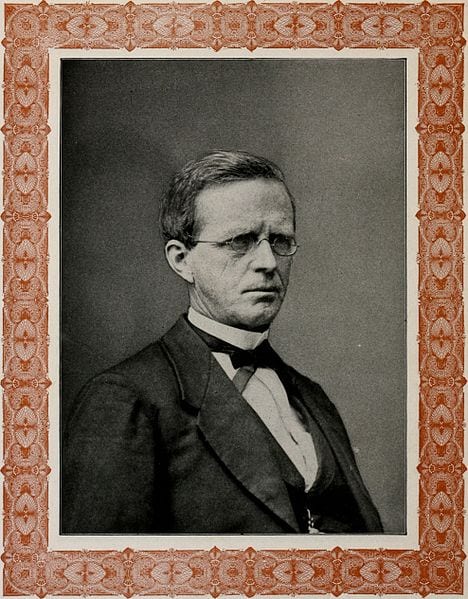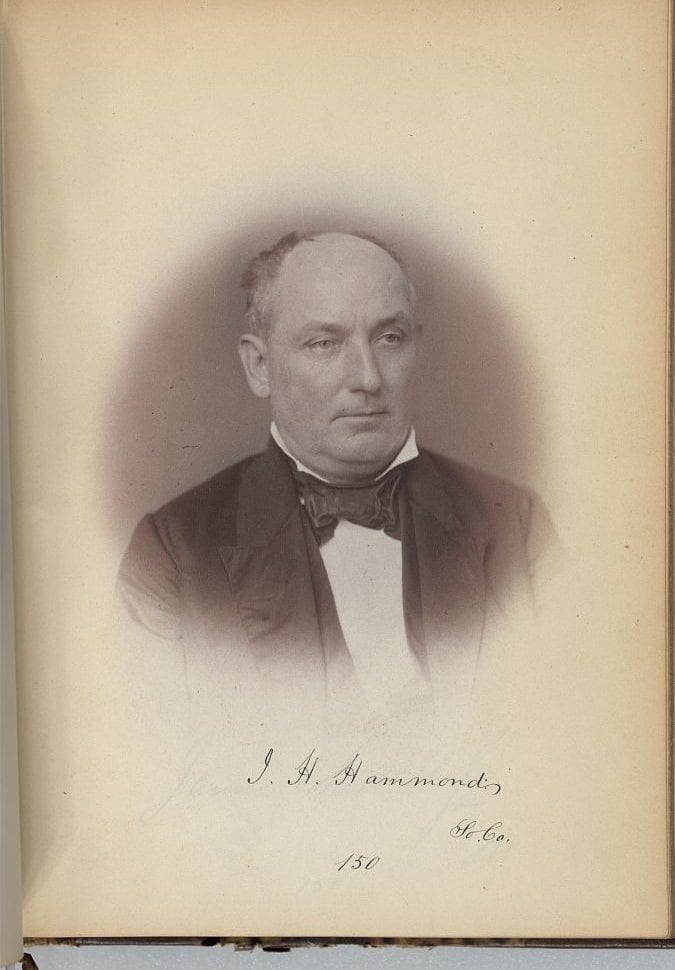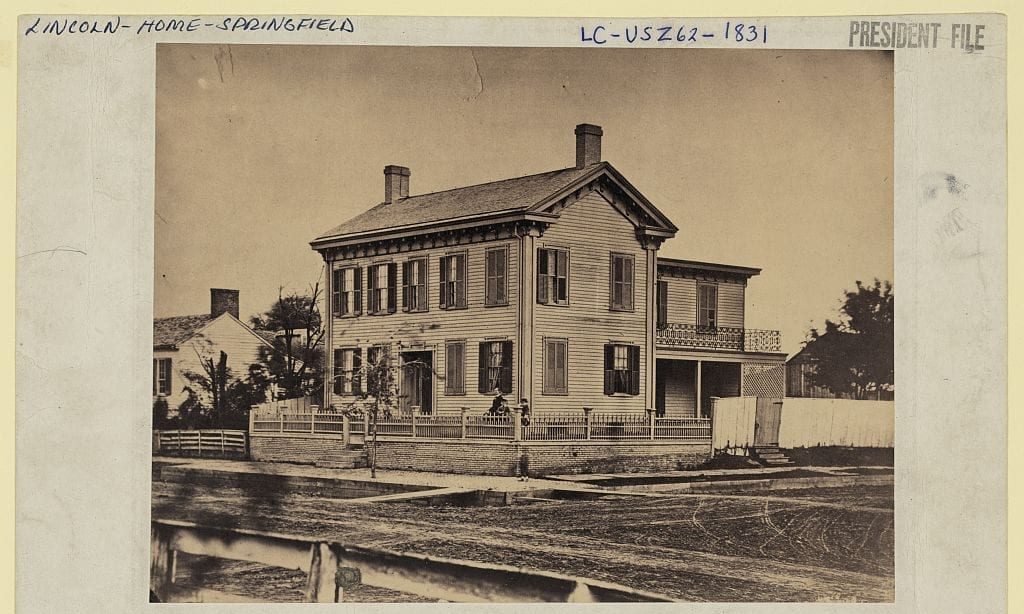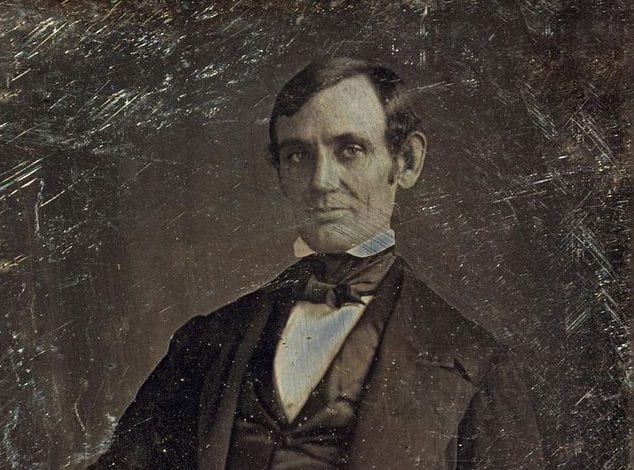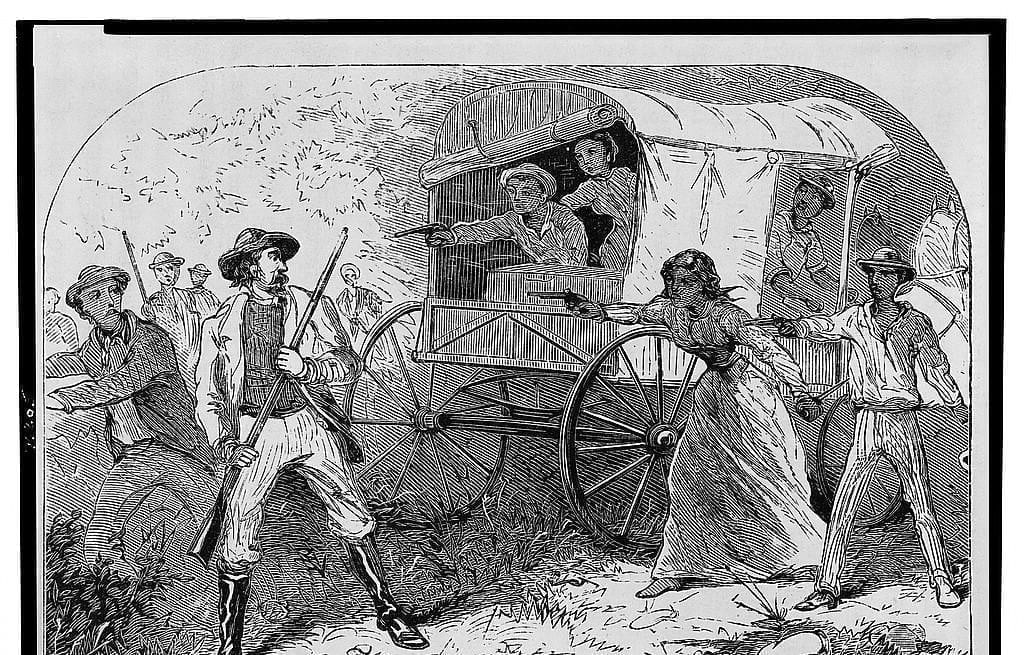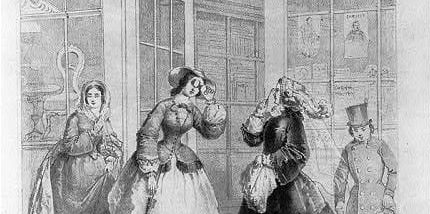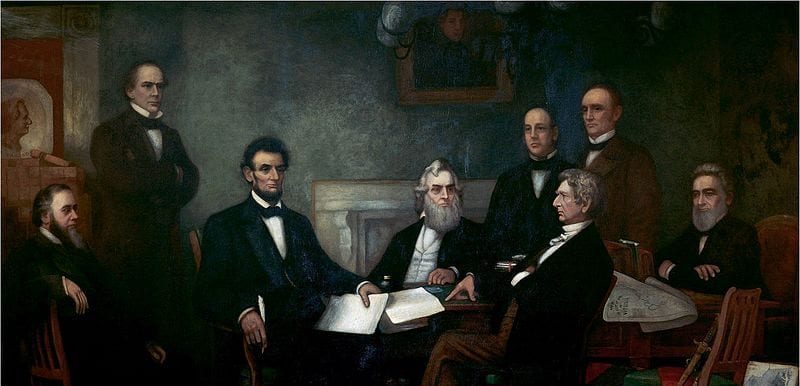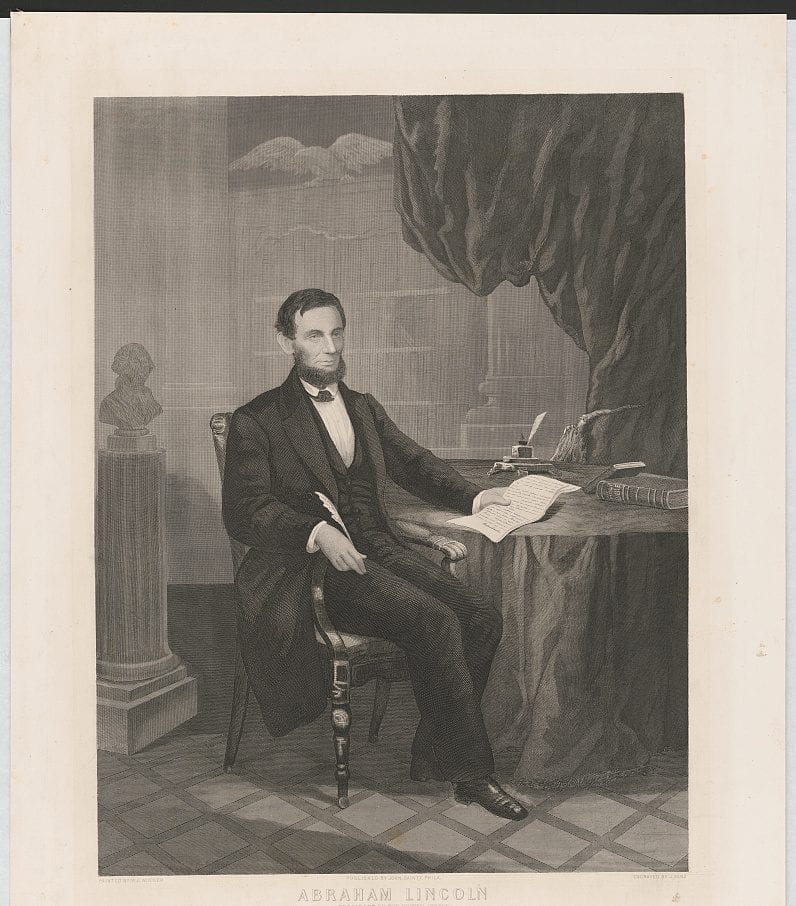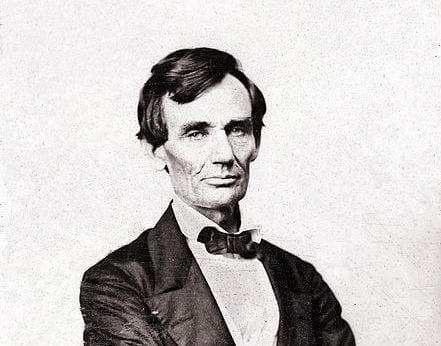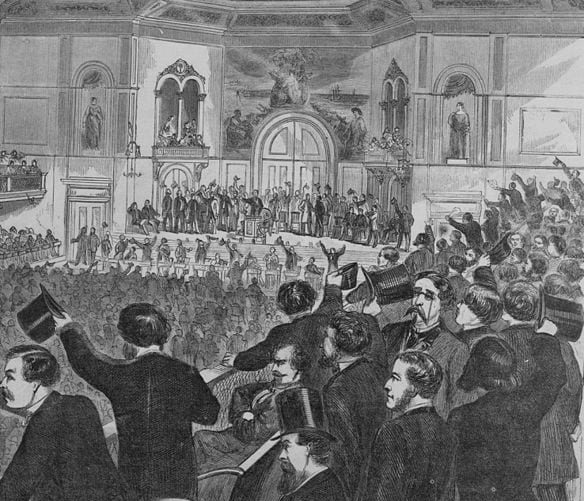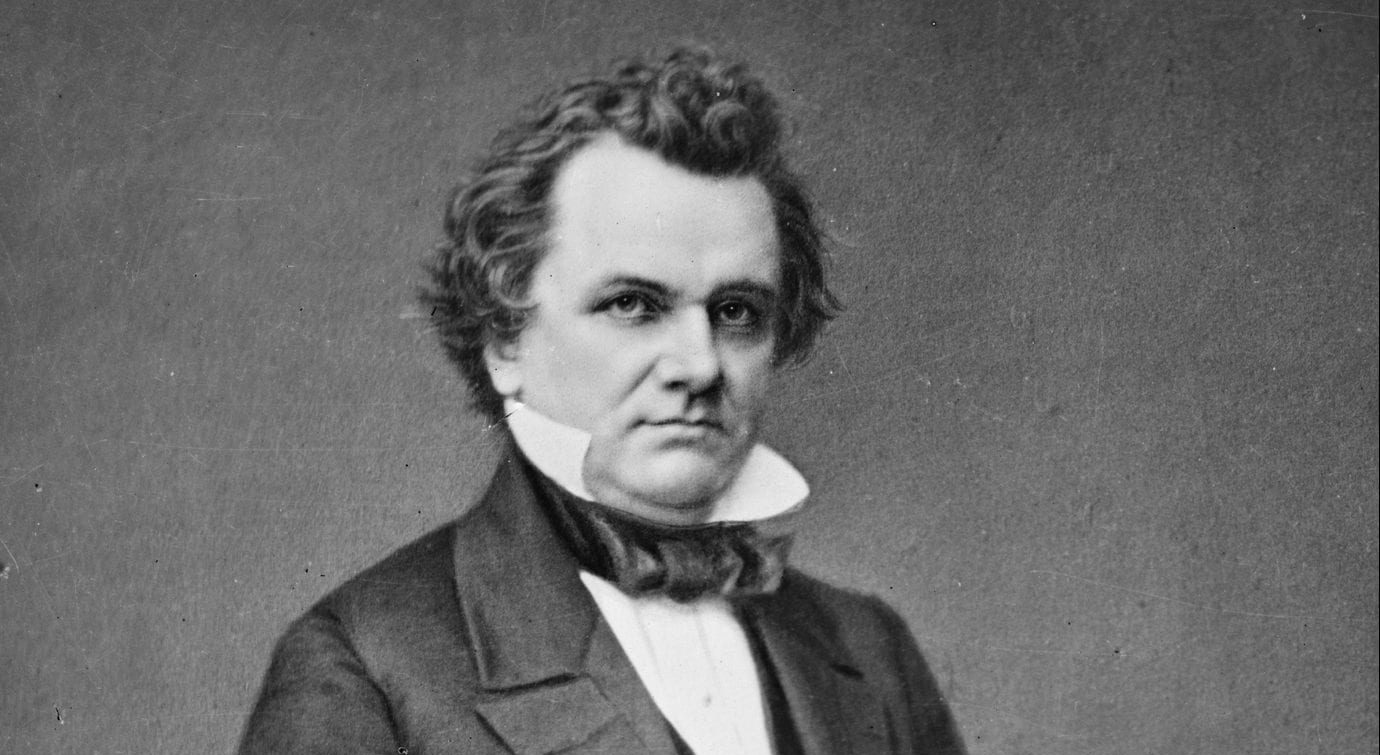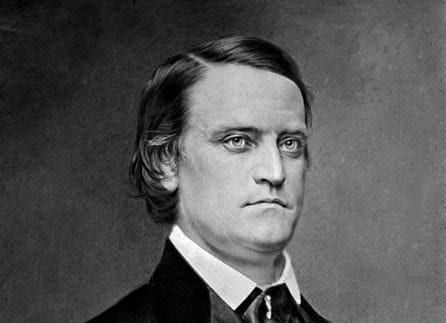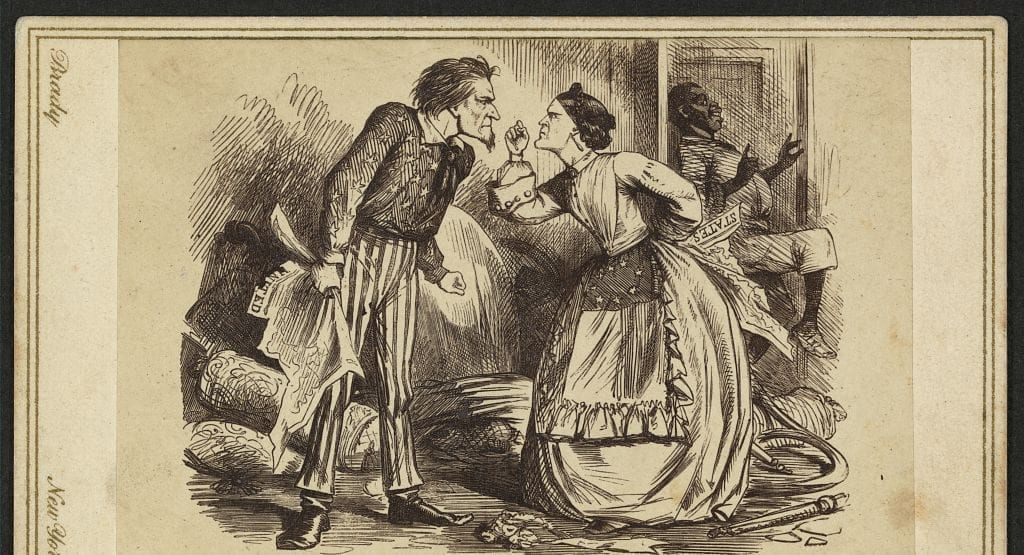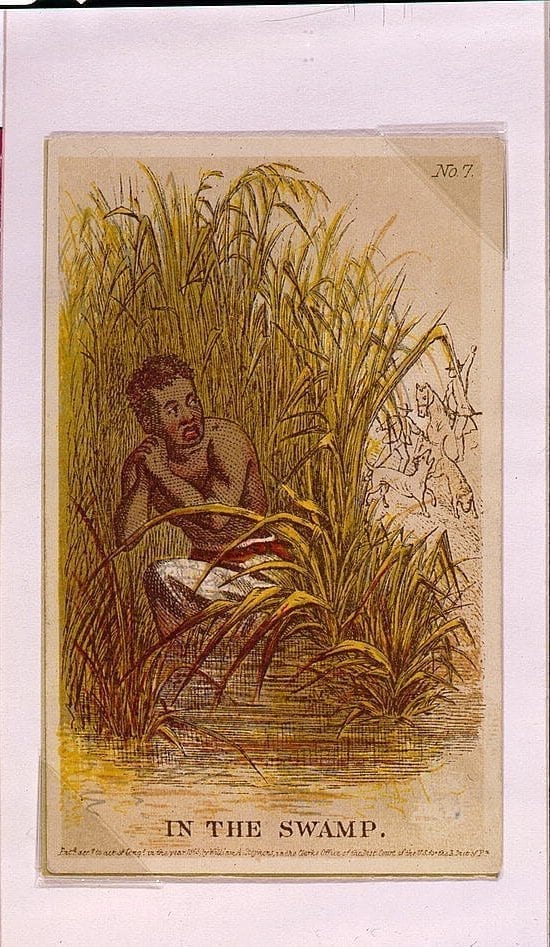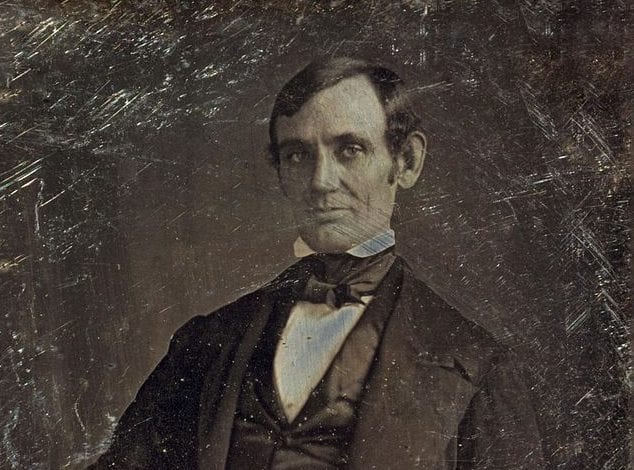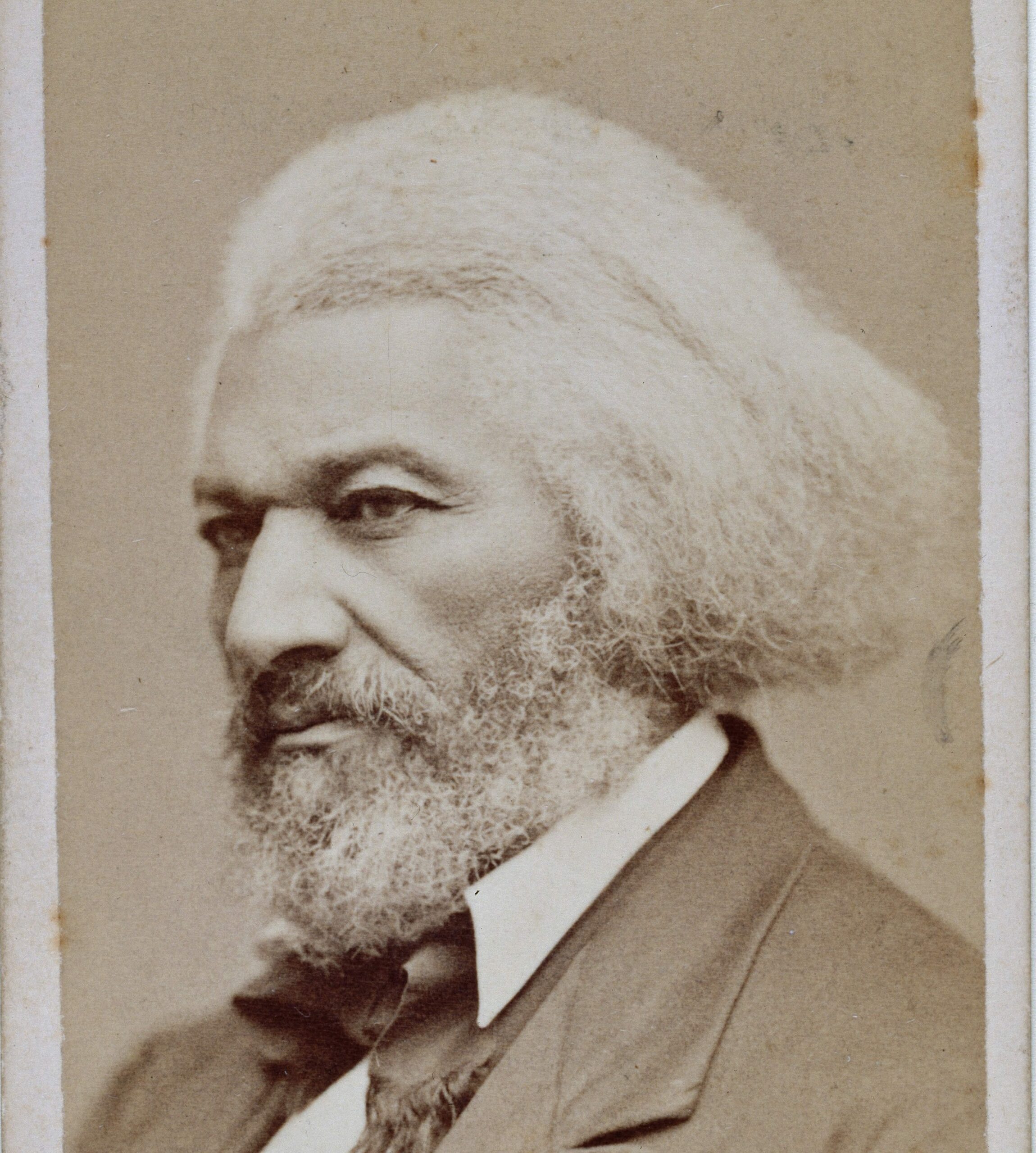


No related resources
Introduction
The passage of the Indian Removal Act(see Jackson’s Second Annual Message) led eventually to the relocation of Indians to the western territories. Some Indians sold their land and moved voluntarily; others resisted removal. Among the Cherokee, the majority committed to peaceful resistance to American pressure for removal while a much smaller group reluctantly agreed to it. When the U.S. government negotiated a treaty with the Cherokees who agreed to relocate (the Treaty of New Echota, 1835), it took the treaty to apply to all Cherokees, even though the official leadership of the tribe did not accept it. Cherokees who did not voluntarily relocate were forcibly moved to the western territories.
John Ross (1790–1866), an opponent of relocation, was the Cherokee chief throughout the struggle over removal and until his death years later. Ross’ mother was Cherokee, his father of Scottish descent. He was bilingual, which helped establish him as a negotiator with the federal government. Ross was a businessman but eventually became more involved in Cherokee politics. He joined the Cherokee national or general council, which consisted largely of wealthier, educated Cherokees of mixed parentage like Ross. He was elected principal chief in 1828. Ross is credited with authorship of the 1830 Address by the General Council against removal that is excerpted below. Written in response to the Jackson administration’s plans for a removal law, it recounts the pressure exerted by the state of Georgia against the Cherokee people, explains why the federal government should protect the Cherokee from state action, and makes an eloquent appeal for justice.
The appeal was unavailing. The Removal Act passed, despite the opposition of Christian missionaries to the Indians and their numerous supporters among what has been called the benevolent empire of reform-minded American Protestants. Whig opponents of Jackson, including prominent politicians such as Senator Theodore Frelinghuysen (1787–1862) of New Jersey, also opposed the Removal Act. Ross and the majority of Cherokees continued to resist removal, despite the act and the Echota Treaty; whites’ hunger for Indian land was too great, especially after the discovery of gold in Cherokee territory in 1828. Pressure for land and disregard for the Indians led to forced removal and all the evils that Ross foretold in his appeal. An estimated two thousand to eight thousand Cherokee died on the “Trail of Tears” to the West. The Creeks and Chickasaws were dispossessed in Alabama and Mississippi in a process similar to what occurred in Georgia, and with equal, if not greater, loss of life.
The U.S. Army, under the command of Gen. Winfield Scott (1786–1866), later commander during the war with Mexico (1846–1848) and once a Whig presidential candidate (1852), carried out the removal. We excerpt his order for removal below. In its awareness of the political aspects of the operation and its expressed care for civilians, Scott’s order would not be out of place in the modern American military. In these aspects, the order reflects the character of the Indian Removal Act, which made it lawful for the president to protect the emigrating tribes and provide them necessary and proper aid and comfort. Scott’s army, however, unlike the modern American military but like government in the United States generally at the time, lacked the logistical and administrative capacity to move safely such large populations, among whom were children, the infirm, and elderly.
Sources: E. C. Tracy, Memoir of the Life of Jeremiah Evarts, Late Corresponding Secretary of the American Board of Commissioners for Foreign Missions (Boston: Crocker and Brewster, 1845), 442–448, available at https://books.google.com; Orders No. 25 Head Quarters, Eastern Division Cherokee Agency, Ten. May 17, 1838, available at http://www.loc.gov/resource/rbpe.1740400a.
John Ross, Address to the People of the United States, by the General Council of the Cherokee Nation, July 1830
Some months ago a delegation was appointed by the constituted authorities of the Cherokee Nation, to repair to the city of Washington, and, in behalf of this nation to lay before the government of the United States such representations as should seem most likely to secure to us as a people that protection, aid, and good neighborhood, which had been so often promised to us, and of which we stand in great need. Soon after their arrival in the city they presented to Congress a petition from our National Council, asking for the interposition of that body in our behalf, especially with reference to the laws of Georgia, which were suspended in a most terrifying manner over a large part of our population, and protesting in the most decided terms against the operation of these laws. In the course of the winter they presented petitions to Congress . . . pleading with the assembled representatives of the American people, that the solemn engagements between their fathers and our fathers may be preserved, as they have been till recently in full force and continued operation. . . .
More than a year ago we were officially given to understand by the secretary of war that the president could not protect us against the laws of Georgia.[1] This information was entirely unexpected; as it went upon the principle that treaties made between the United States and the Cherokee Nation have no power to withstand the legislation of separate states;[2] and of course that they have not efficacy whatever, but leave our people to the mercy of the neighboring whites, whose supposed interests would be promoted by our expulsion or extermination. It would be impossible to describe the sorrow which affected our minds on learning that the chief magistrate of the United States[3] had come to this conclusion, that all his illustrious predecessors had held intercourse with us on principles which could not be sustained; that they had made promises of vital importance to us, which could not be fulfilled—promises made hundreds of times, in almost every conceivable manner—often in the form of solemn treaties. . . .
Soon after the War of the Revolution, as we have learned from our fathers, the Cherokees looked upon the promises of the whites with great distrust and suspicion; but the frank and magnanimous conduct of General Washington did much to allay these feelings. The perseverance of successive presidents, and especially of Mr. Jefferson in the same course of policy, and in the constant assurance that our country should remain inviolate, except so far as we voluntarily ceded it nearly perished anxiety in regard to encroachments from the whites. To this result the aid which we received from the United States in the attempts of our people to become civilized, and the kind efforts of benevolent societies have greatly contributed.[4] Of late years, however, much solicitude was occasioned among our people by the claims of Georgia. This solicitude arose from an apprehension that by extreme importunity, threats, and other undue influence, a treaty would be made, which should cede the territory and thus compel the inhabitants to remove.[5] But it never occurred to us for a moment that without any new treaty, without any assent of our rulers and people, without even a pretended compact, and against our vehement and unanimous protestations, we should be delivered over to the discretion of those, who had declared by a legislative act, that they wanted the Cherokee lands and would have them.[6]
Finding that relief could not be obtained from the chief magistrate, and not doubting that our claim to protection was just, we made our application to Congress. During four long months our delegation waited at the doors of the national legislature of the United States, and the people at home, in the most painful suspense, to learn in what manner our application would be answered; and now that Congress has adjourned, on the very day before the date fixed by Georgia for the extension of her oppressive laws over the greater part of our country, the distressing intelligence has been received that we have received no answer at all; and no department of the government has assured us that we are to receive the desired protection. But just at the close of the session, an act was passed, by which half a million of dollars was appropriated toward effecting a removal of Indians;[7] and we have great reason to fear that the influence of this act, will be brought to bear most injuriously upon us. The passage of this act is certainly understood by the representatives of Georgia as abandoning us to the oppressive and cruel measures of the state, and is sustaining the opinion that treaties with Indians do not restrain state legislation. . . . To our countrymen, this has been melancholy intelligence and with the most bitter disappointment has it been received.
But in the midst of our sorrows, we do not forget our obligations to our friends and benefactors. It was with sensations of inexpressionable joy, that we have learned that the voice of thousands in many parts of the United States has been raised in our behalf, and the numerous memorials offered in our favor, in both houses of Congress. . . . Our special thanks are due however, to those honorable men, who so ably, and eloquently asserted our rights, in both branches of the national legislature. . . .
Before we close this address, permit us to state what we conceive to be our relations with the United States. After the peace of 1785,[8] the Cherokees were an independent people; absolutely so, so much as any people on earth. They had been allies to Great Britain, and as a faithful ally, took a part in the colonial war on her side.[9] . . . She [Great Britain] acknowledged the independence of the United States, and made peace. The Cherokees therefore stood alone; and in these circumstances continued the war. They were then under no obligations to the United States any more than to Great Britain, France, or Spain. The United States never subjugated the Cherokees; on the contrary, our fathers remained in possession of their country, and with arms in their hands.
The people of the United States sought a peace; and, in 1785, the Treaty of Hopewell was formed, by which the Cherokees came under the protection of the United States, and submitted to such limitation of sovereignty as are mentioned in that instrument. None of these limitations however, affected in the slightest degree their rights of self-government and inviolate territory. . . . When the federal Constitution was adopted the Treaty of Hopewell was contained, with all other treaties, as the supreme law of the land. In 1791, the Treaty of Holston was made, by which the sovereignty of the Cherokees was qualified as follows: The Cherokees acknowledged themselves to be under the protection of the United States, and of no other sovereign. They engaged that they would not hold any treaty with a foreign power, with any separate state of the Union, or with individuals. They agreed that the United States should have the exclusive right of regulating their trade; that the citizens of the United States have a right of way in one direction through the Cherokee country; and that if an Indian should do injury to a citizen of the United States, he should be delivered up to be tried and punished. A cession of lands was also made to the United States. On the other hand, the United States paid a sum of money; offered protection; engaged to punish citizens of the United States who should do any injury to the Cherokees; abandoned white settlers on Cherokee lands to the discretion of the Cherokees, stipulated that white men should not hunt on these lands, nor even enter the country without a passport; and gave a solemn guaranty of all Cherokees lands not ceded. This treaty is the basis of all subsequent compacts; and in none of them are the relations of the parties at all changed.
The Cherokees have always fulfilled their engagements. . . .
The people of the United States will have the fairness to reflect that all the treaties between them and the Cherokees were made at the sole invitation and for the benefit of the whites; that valuable considerations were given for every stipulation, on the part of the United States; that it is impossible to reinstate the parties in their former situation; that there are now hundreds of thousands of citizens of the United States residing upon lands ceded by the Cherokees in these very treaties, and that our people have trusted their country to the guaranty of the United States. If this guaranty fails them, in what can they trust, and where can they look for protection?
We are aware, that some persons suppose it will be for our advantage to remove beyond the Mississippi. We think otherwise. Our people universally think otherwise. Thinking that it would be fatal to their interests, they have almost to a man sent their memorial to Congress, deprecating the necessity of a removal. . . . It is incredible that Georgia should ever have enacted the oppressive laws, to which reference is here made, unless she had supposed that something extremely terrific in its character was necessary in order to make the Cherokees willing to remove. We are not willing to remove; and if we could be brought to this extremity, it would be not by argument, not because our judgment was satisfied, not because our condition will be improved; but only because we cannot endure to be deprived of our national and individual rights and subjected to a process of intolerable oppression.
We wish to remain on the land of our fathers. We have a perfect and original right to claim without interruption or molestation. The treaties with us, and laws of the United States made in pursuance of treaties, guarantee our residence, and our privileges and secure us against intruders. Our only request is, that these treaties may be fulfilled, and these laws executed.
But if we are compelled to leave our country, we see nothing but ruin before us. The country west of the Arkansas territory[10]is unknown to us. From what we can learn of it, we have no prepossessions in its favor. All the inviting parts of it, as we believe, are preoccupied by various Indian nations, to which it has become assigned. They would regard us as intruders, and look upon us with an evil eye. The far greater part of that region is, beyond all controversy, badly supplied with wood and water; and no Indian tribe can live as agriculturists without these articles. All our neighbors in case of our removal, though crowded into our near vicinity, would speak a language totally different from ours and practice different customs. The original possessors of that region are now wandering savages, lurking for prey in the neighborhood. They have always been at war, and would be easily tempted to turn their arms against peaceful emigrants. Were the country to which we are urged much better than it is represented to be, and were it free from objections which we have made to it, still it is not the land of our birth, nor of our affections. It contains neither the scenes of our childhood, nor the graves of our fathers. . . .
It is under a sense of the most pungent feelings that we make this, perhaps our last appeal to the good people of the United States. . . . Shall we, be compelled by a civilized and Christian people, with whom we have lived in perfect peace for the last forty years, and for whom we have willingly bled in war,[11] to bid a final adieu to our homes, our farms, our streams, and our beautiful forests? No. We are still firm. We intend still to cling with our wonted affection to the land which gave us birth and which every day of our lives brings to us new and stronger ties of attachment. . . . On the soil which contains the ashes of our beloved men we wish to live—on this soil we wish to die.
We entreat those to whom the preceding paragraphs are addressed to remember the great law of love, “Do to others as ye would that others should do to you.”[12] Let them remember that of all nations on the earth, they are under the greatest obligations to obey this law. We pray them to remember that, for the sake of principle, their forefathers were compelled to leave, therefore driven from the old world, and that the winds of persecution wafted them over the great waters and landed them on the shores of the new world, when the Indian was the sole lord and proprietor of these extensive domains. Let them remember in what way they were received by the savage of America, when power was in his hand, and his ferocity could not be restrained by any human arm. We urge them to bear in mind, that those who would now ask of them a cup of cold water, and a spot of earth, a portion of their own patrimonial possessions on which to live and die in peace, are the descendants of those whose origin as inhabitants of North America history and tradition are alike insufficient to reveal. Let them bring to remembrance all these facts, and they cannot, and we are sure they will not, fail to remember, and sympathize with us in these our trials and sufferings.
Orders No. 25 Head Quarters, Eastern Division Cherokee Agency, Ten. May 17, 1838
Major General Scott, of the United States’ Army, announces to the troops assembled and assembling in this country, that, with them, he has been charged by the president to cause the Cherokee Indians yet remaining in North Carolina, Georgia, Tennessee, and Alabama, to remove to the West, according to the terms of the Treaty of 1835.[13]
The duties devolved on the Army, through the orders of the Major General and those of the commanders of districts, under him, are of a highly important and critical nature.
The Cherokees, by the advances which they have made in Christianity and civilization, are by far the most interesting tribe of Indians in the territorial limits of the United States. Of the 15,000 of those people who are now to be removed—(and the time within which a voluntary emigration was stipulated, will expire on the 23rd instant—)[14] it is understood that about four-fifths are opposed, or have become averse to a distant emigration; and although none are in actual hostilities with the United States, or threaten a resistance by arms, yet the troops will probably be obliged to cover the whole country they inhabit, in order to make prisoners and to march or to transport the prisoners, by families, either to this place, to Ross’ Landing or Gunter’s Landing, where they are to be finally delivered over to the superintendent of Cherokee emigration.
Considering the number and temper of the mass to be removed, together with the extent and fastnesses of the country occupied, it will readily occur, that simple indiscretions—acts of harshness and cruelty, on the part of our troops, may lead, step by step, to delays, to impatience and exasperation, and in the end, to a general war and carnage—a result, in the case of those particular Indians, utterly abhorrent to the generous sympathies of the whole American people. Every possible kindness, compatible with the necessity of removal, must, therefore, be shown by the troops, and, if, in the ranks, a despicable individual should be found, capable of inflicting a wanton injury or insult on any Cherokee man, woman or child, it is hereby made the special duty of the nearest good officer or man, instantly to interpose, and to seize and consign the guilty wretch to the severest penalty of the laws. The Major General is fully persuaded that this injunction will not be neglected by the brave men under his command, who cannot be otherwise than jealous of their own honor and that of their country.
By early and persevering acts of kindness and humanity, it is impossible to doubt that the Indians may soon be induced to confide in the Army, and instead of fleeing to mountains and forests, flock to us for food and clothing. If, however, through false apprehensions, individuals, or a party, here and there, should seek to hide themselves, they must be pursued and invited to surrender, but not fired upon unless they should make a stand to resist. Even in such cases, mild remedies may sometimes better succeed than violence; and it cannot be doubted that if we get possession of the women and children first, or first capture the men, that, in either case, the outstanding members of the same families will readily come in on the assurance of forgiveness and kind treatment.
Every captured man, as well as all who surrender themselves, must be disarmed, with the assurance that their weapons will be carefully preserved and restored at, or beyond the Mississippi. In either case, the men will be guarded and escorted, except it may be, where their women and children are safely secured as hostages; but, in general, families, in our possession, will not be separated, unless it be to send men, as runners, to invite others to come in.
It may happen that Indians will be found too sick, in the opinion of the nearest surgeon, to be removed to one of the depots indicated above. In every such case, one or more of the family, or the friends of the sick person, will be left in attendance, with ample subsistence and remedies, and the remainder of the family removed by the troops. Infants, superannuated persons, lunatics, and women in a helpless condition will all, in the removal, require peculiar attention, which the brave and humane will seek to adapt to the necessities of the several cases.
All strong men, women, boys and girls, will be made to march under proper escorts. For the feeble, Indian horses and ponies will furnish a ready resource, as well as for bedding and light cooking utensils—all of which, as intimated in the treaty, will be necessary to the emigrants both in going to, and after arrival at, their new homes. Such, and all other light articles of property, the Indians will be allowed to collect and to take with them, as also their slaves, who will be treated in like manner with the Indians themselves.
If the horses and ponies be not adequate to the above purposes, wagons must be supplied. Corn, oats, fodder, and other forage, also beef cattle, belonging to the Indians to be removed, will be taken possession of by the proper departments of the staff, as wanted, for the regular consumption of the Army, and certificates given to the owners, specifying in every case, the amount of forage and the weight of beef, so taken, in order that the owners may be paid for the same on their arrival at one of the depots mentioned above.
All other moveable or personal property, left or abandoned by the Indians, will be collected by agents appointed for the purpose, by the superintendent of Cherokee emigration, under a system of accountability, for the benefit of the Indian owners, which he will devise. The Army will give to those agents, in their operations, all reasonable countenance, aid and support.
White men and widows, citizens of the United States, who are, or have been intermarried with Indians, and thence commonly termed, Indian countrymen; also such Indians as have been made denizens of particular states by special legislation, together with the families and property of all such persons, will not be molested or removed by the troops until a decision, on the principles involved, can be obtained from the War Department. A like indulgence, but only for a limited time, and until further orders, is extended to the families and property of certain chiefs and headmen of the two great Indian parties (on the subject of emigration) now understood to be absent in the direction of Washington on the business of their respective parties.
This order will be carefully read at the head of every company in the Army.
By Command:
- 1. Georgia passed legislation extending its law over Native Americans to take effect July 1, 1830.
- 2. See Worcester v. Georgia.
- 3. The president of the United States, in this case Andrew Jackson. See Second Annual Message to Congress.
- 4. The Cherokees, Creeks, Chickasaws, Choctaws, and Seminoles were referred to as the civilized tribes. They were agricultural, had centralized government, owned land as individuals, engaged in commerce, and intermarried with other Americans. Many were Christian. Like other southerners, some ran plantations and owned African American slaves. Many became Christian through the missionary activity of American Protestants, whose benevolent, or aid, societies retained an interest in the tribes and tried to help them in their political struggles with the states and the federal government. See Worcester v. Georgia.
- 5. Ross foretells here what came to pass in the Treaty of Echota.
- 6. Ross refers to the state of Georgia.
- 7. The Indian Removal Act of 1830.
- 8. The Treaty of Hopewell, mentioned below in Ross’ text.
- 9. The American Revolution.
- 10. What is today the state of Oklahoma.
- 11. Cherokees had fought on behalf of the United States, including under Jackson’s command during his campaigns against other Indians.
- 12. Matthew 7:12, Luke 6:31.
- 13. The Echota Treaty.
- 14. The word “instant” in this context means this month; i.e., May.

Conversation-based seminars for collegial PD, one-day and multi-day seminars, graduate credit seminars (MA degree), online and in-person.














